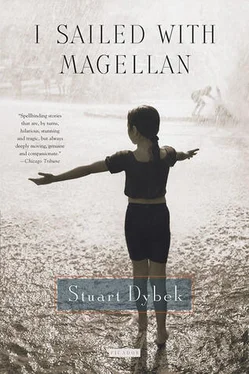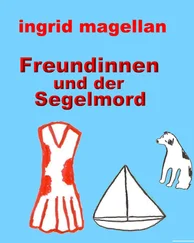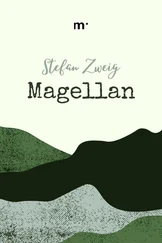For me it was another night like that, and by the time I reached my stop I knew I would be feeling better, recovered enough to walk the dark street home making up poems of longing that I never wrote down. I was the D. H. Lawrence of not doing it, the voice of all the would-be lovers who ached and squirmed. From our contortions in doorways, on stairwells, and in the bucket seats of cars we could have composed a Kama Sutra of interrupted bliss. It must have been that night when I recalled all the other times of walking home after seeing you, so that it seemed as if I was falling into step behind a parade of my former selves — myself walking home on the night we first kissed, myself on the night when I unbuttoned your blouse and kissed your breasts, myself on the night when I lifted your skirt above your thighs and dropped to my knees — each succeeding self another step closer to that irrevocable moment for which our lives seemed poised.
But we didn’t, not in the moonlight, or by the phosphorescent lanterns of lightning bugs in your back yard, not beneath the constellations we couldn’t see, let alone decipher, or in the dark glow that replaced the real darkness of night, a darkness already stolen from us, not with the skyline rising behind us while a city gradually decayed, not in the heat of summer while a Cold War raged, despite the freedom of youth and the license of first love — because of fate, karma, luck, what does it matter? — we made not doing it a wonder, and yet we didn’t, we didn’t, we never did.
My brother, Mick, crossing the country on a Greyhound Ameripass, has stopped in Chicago and stands before the old apartment building on Washtenaw where we grew up. Out in front, lounging on the cracked, concrete steps as we used to, five chicos teenagers wearing gang colors — stare in his direction. Maybe they’re Satan Disciples, maybe Two-Twos, maybe La Raza; the gangs in this neighborhood come and go, leaving the RIP of graffiti behind.
“Qué tú quieres?” —What do you want? — one of the Disciples asks him.
Mick is on his roundabout way to Memphis, where our father, who has never missed a day of work to illness, is scheduled to have exploratory surgery. That’s what they’re calling it, but the doctor took me aside to say, “Be prepared, because, frankly, we’re not sure what we’re going to find when we open him up.”
Mick says he wants to be there when Sir wakes from the anesthetic, to be by his side in case the doctor’s diagnosis sounds more like a sentence.
But Mick also wants to take advantage of the Ameripass that he purchased with what should have been the rent money for his bath-down-the-hall flop in a rooming house for men only. It’s across from a block of porno places in Hell’s Kitchen, and it’s where he’s been living since a fire totaled his apartment on Delancey Street.
“Who needs a fucking rip-off dump? I can live on buses,” he told me.
Mick has decided that as long as he is, so to speak, traveling back in time to visit our father, he might as well “visit other shrines of memory”—his phrase, irony intended.
On this trip, he’s already stopped in D.C., where he once camped in a tent city of civil-rights activists and was twice arrested protesting the war in Vietnam. From D.C. he rode to Pittsburgh, where he was hoping to find Joy, a Cambodian woman to whom he was married for a month — in fact, she’s still legally his wife; they never bothered with a divorce. That was years ago, in New Orleans, when, as a favor to a friend, Mick married Joy to get her past Immigration. Mick was living with another woman at the time and, after a month, Joy moved on as planned to stay with relatives in Houston. After she’d gone, Mick realized that she haunted him, that though he’d never touched her, he’d fallen in love with her. He’s been looking for Joy off and on ever since, and whenever he does, I know something isn’t right in his life. Over the years he’d heard that she was in San Diego, in Portland, in Denver, but this time he had an address for her on Kish Way in Pittsburgh. He couldn’t make out any of the names scribbled under the mailboxes when he found the apartment building, but the hallways smelled like Asia. He began knocking at doors. Behind some of them, people shouted back, but the doors didn’t open; other doors remained silent. Finally, he jotted a note saying he loved her on the back of one of the Chinese take-out menus piled in a corner, and slipped it beneath a silent door, the one that a flash of intuition told him was hers, then got back on the Greyhound.
Mick’s plan is to visit our father in Memphis, then to continue on to New Orleans, a city where he lived for seven years before moving to New York — years of working on the barges that travel the Gulf Coast, of tending bar, waiting tables, becoming an actor. New Orleans is another place where he’s seen the inside of a prison.
But now Mick is back in Chicago, the city where he was born. He left it when he was fourteen, at the end of his freshman year in high school, when our father got transferred to Memphis. For me that had been an opportunity to move out and stay behind on my own; Mick had no choice but to transfer to Memphis, too. In Memphis, they lived in a ranch house, not an apartment building, and Mick slept alone in a bedroom furnished with our set of twin beds from the flat on Washtenaw. He piled the bed that had been mine with the books in which he’d lose himself — Dostoyevsky, Proust, Kafka, Jung. At school, he was getting into fights and failing most of his classes. I remember Moms, whom we’d rechristened Mammy after the move south, telling me how sometimes she’d check on Mick at night and find him poring over a Chicago street map spread open on his desk.
He’s bought our father a present, a souvenir of Chicago — a kielbasa. That was the first thing Mick did after finding his way from the Greyhound station back to our old neighborhood: buy two long links of smoked Polish sausage from Slotkowski’s, which, Mick unerringly recalls, was our father’s favorite butcher shop. Mick prides himself on having a photographic memory. He claims he can remember actually being born. Mick has become a devotee of Santeria, and his santero in the Bronx has encouraged him to recall his childhood through dreams. Each night Mick sets a half-full water glass beside his bed — it’s a charm that promotes significant dreams. He is seeking a moment in childhood that will explain the shape his life has taken. He dreams of our old cold-water flat on Eighteenth Street, where his crib stood in the dining room; he remembers me staring in at him through the wooden bars, whispering, “Shut up, crybaby”; he remembers our father lifting him from the crib, rocking Mick in his arms over to the open fourth-story window, and holding him out beyond the ledge, still rocking him, perhaps considering whether to throw him out or maybe just soothing his diaper rash in the night breeze. There’s something about our father Mick is trying to summon up. Maybe it resides in the recurring dream in which Sir stands above the crib at midnight when the household is asleep, striking sulfurous blue-tipped stick matches and holding the flame close to Mick’s face, while Mick, awake in the dark, stares up in silence. In the dream, he knows he must remain silent. His life depends on it.
“That never happened, Dad wouldn’t stand there wasting matches,” I said when Mick implied that at some point Sir wanted to kill him.
“How would you know?”
“Hey, he’s only my father, too.”
“Yeah, and don’t you think it’s a little weird that you, the firstborn, get Anglicized to Perry like you’re some fucking admiral, and I get named after our crazy DP grandfather who they left to rot in the state madhouse.”
Читать дальше












